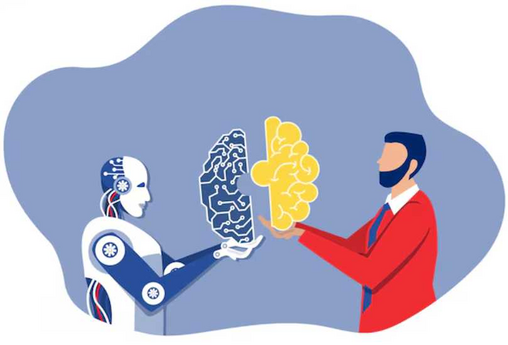Not too long ago, “searching the web” meant typing a few words into Google, scrolling past ads, clicking links, and hoping one of those pages actually answered your question. It was a game of patience.
But in 2025, things are shifting fast. Instead of giving us lists of links, AI tools are starting to act more like answer engines. They don’t just point us toward information; they deliver it directly, in plain language, almost like a conversation with a knowledgeable friend.
And this shift isn’t just about convenience. It’s reshaping the way we interact with the internet, how businesses think about visibility, and even how we decide what content feels authentic.
The Old Way: Search Engines and the Keyword Era
Search engines built their empire on keywords. If you typed “best laptop for students,” you’d get dozens of articles carefully optimized with that phrase sprinkled throughout. SEO experts lived and breathed keyword density, backlinks, and page speed.
It worked for a while. But it also gave rise to clickbait headlines, endless listicles, and sometimes content that felt more like it was written for algorithms than for humans.
Now, with AI in the picture, people are skipping past the middlemen. Instead of typing “AI story generator examples” into Google, they’re asking tools directly: “Can you write me a short story about a detective in space?” And they’re getting an answer instantly.
Talking to Machines, Not Searching
The shift is subtle but massive. People are starting to expect answers, not search results. They want context, not just links.
This is why terms like content humanizer are popping up more often. When AI spits out robotic, repetitive text, readers can tell. To keep things useful, these tools now not only answer but also polish responses to feel natural, almost human.
The result? Instead of bouncing around 10 different websites to find what you need, one interaction gives you something clear, simple, and personal.

What Happens to SEO in an Answer-First World
This is where things get interesting. If search engines evolve into answer engines, the whole playbook for online visibility changes.
Keywords matter less; clarity matters more. Instead of trying to rank for “conclusion generator,” the focus shifts to whether your content actually provides useful, reliable answers that AI might reference.
Authority beats quantity. An avalanche of low-quality articles won’t trick AI systems. They’re learning to favor sources with trust and depth.
Human touch becomes priceless. If everything sounds machine-made, people will crave authentic voices. That’s why AI humanizer tools are gaining traction; they help writers keep that natural, human tone intact.
We might be watching the slow decline of “traditional SEO tricks” and the rise of what some are calling “answer optimization.”
Everyday Tools Already Point to the Future
Think about it. You ask a chatbot to write your meeting summary. You use a conclusion maker to tidy up your essay. You try an AI story generator for creative writing prompts. None of these involves searching for a web page; they’re direct answers to specific needs.
Even big players like Google and Bing know the game is changing. Their newer tools already embed AI-powered results that summarize content for you. That “list of blue links” isn’t going away completely, but it’s no longer the star of the show.
Why Authenticity Still Wins
Here’s the twist: as much as people enjoy quick answers, we’re also becoming more sensitive to tone and trust. If something feels too mechanical, we hesitate. That’s why creators and businesses are turning to content humanizer tools to bridge the gap between speed and sincerity.
The internet is being flooded with AI-generated text, some of it shallow or repetitive. But readers notice when an idea has depth, when an insight feels lived-in, when a voice feels real. In other words: humans still matter.
A Real Example: Choosing the Right Tools
Plenty of platforms now compete to be the go-to AI assistant. Some focus on speed, others on accuracy, and a few try to balance both. A recent review highlighted how different AI writing tools perform depending on the task, whether that’s generating drafts, rewriting content, or editing. If you’re curious, check out this overview of AI writing platforms.
The takeaway? The best tools don’t just answer questions; they help shape content in a way that feels useful and authentic.
Will Search Engines Disappear?
Probably not. At least, not anytime soon. There’s still value in digging deeper, exploring multiple perspectives, and clicking into sources. Answer engines are amazing for quick help, but when the question is complex, say, researching climate change policies or planning a major purchase, people will still want multiple voices, data points, and viewpoints.
The bigger change will be how search and answers overlap. Imagine a hybrid system: ask a question, get a quick summary, and then dive into curated sources if you want more. That feels like the sweet spot we’re heading toward.

What It Means for Creators and Businesses
If you create content online, whether that’s blogs, videos, or podcasts, you’ll need to think differently. Instead of asking, “What keywords do I target?” the new question is:
“What unique, trustworthy perspective do I provide that AI can’t easily replicate?”
Use AI tools to brainstorm, but always refine with your own insights.
Lean into personal experiences, something no machine can generate.
Focus on clarity and conversation. Readers want to feel like you’re talking to them, not at them.
The conclusion generator might help close an article neatly, but the lived perspective you add is what makes people come back.
Looking Ahead
We’re only at the beginning of this shift. Ten years from now, people might laugh at the idea of typing keywords into a search box. By then, conversations with AI may be as normal as texting a friend.
But no matter how advanced the machines get, one thing remains the same: answers alone don’t satisfy us. We want answers that feel relevant, trustworthy, and human. That’s why tools like the AI humanizer are as much about preserving connection as they are about polishing text.
The internet is no longer just a library of links; it’s turning into a conversation. Search engines are evolving into answer engines, reshaping the way we discover and consume information.
For creators, the challenge isn’t to outsmart algorithms but to embrace them using AI for speed while leaning on your own voice for authenticity.
Because at the end of the day, an algorithm can give you facts. But only you can give them meaning.
That’s where the future of the web lies: not in endless searches, but in meaningful answers delivered fast, polished with care, and always anchored in the human experience.
Want to read more? Check out these blogs:
When the Future Feels Closer Than Ever, Reflections on AI and the Changing Art of Writing














